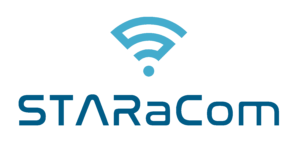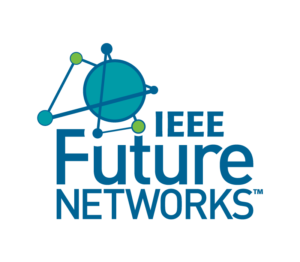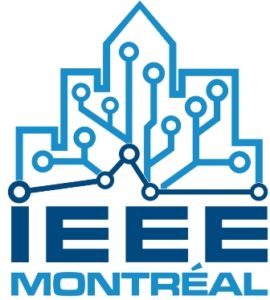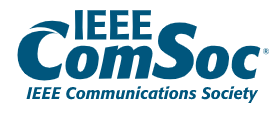14 October 2022 // 11:00 – 12:30 // Virtual-only
MOTIVATION
The cost of industrial production, quality management and pollution control is increasing as stringent customer requirement, global warming and demand of high productivity are on rise. In this perspective, Industrial Internet of Things (IIoT) can be highly beneficial as it enables significant hike in predictive maintenance, improvement in asset tracking and accordingly helps to achieve enhanced customer satisfaction thorough preparing customer-centric product roadmaps. Industrial Internet of Things (IIoT) enabling technologies are consists of Wireless Sensor Networks, Cloud Computing, Big Data Analytics, Communications Protocols, and Embedded System that keep the industries like heath care, agriculture, smart city etc. reachable to the society efficiently.
OBJECTIVE
The objective of IIoT Enabling Technologies vertical summit is to bring together the researchers, academicians and practitioners to share their experiences and present results through panel discussions and presentation sessions. The presentation and discussion will focus on the IIoT enablers for industry, IoT industry informatics, privacy and security issues for industry database, and IIoT devices and platforms.
SCOPE
Nowadays, industry is going towards zero tolerance regarding environment and safety, elimination of all the possible man-hour loss through perfect predictive maintenance, implementation of total quality management (TQM) and highest level of automation in line with industry 4.0. This eventually leads Industries to utilizevarious sensors to perceive information, transmit information through 5G and IoT, and processes the information using fog / edge computing. The increasing demands on the network in terms of bandwidth, security, and latency are the challenges to be addressed in connecting the IoT industrial components. The future network dedicated to industry is expected to fulfill the requirements of the industrial applications like ultra-low latency, high bandwidth, ultra-high reliability, and high energy efficiency for the low power smart devices. Optimization of the industrial process and resources, increasing the energy efficiency of the low power devices, maintaining the industrial data availability, and enhancing the quality of services would be the major objectives of IIoT.
SESSION OUTLINE
- Session I (Moderator: Suchismita Chinara & Snehanshu Pal)
- IIoT enablers for Industry (WSN, Cloud computing, Big Data etc.)
- Communication Protocols for IIoT
- Session II (Moderator: Ashutosh Dutta)
- Artificial Intelligence in IIoT
- IoT and manufacturing informatics
ORGANIZERS/PANELISTS

Suchismita Chinara is currently working in the Department of Computer Science and Engineering at the National Institute of Technology, Rourkela (India). She has above 10 years of experience in teaching and research. She has also worked as the adjunct faculty member in the department of Electrical and Computer Engineering, San Diego State University, USA in 2013. She received her Ph.D. degree in Computer Science and Engineering from National Institute of Technology, Rourkela (India). Her current research interests include Wireless Ad Hoc and Sensor Networks, IoT, Fog Computing, and Computer Networks. Dr. Chinara has authored over 80 scholarly articles in the areas of wireless networks and IoT. She has received several awards for her research papers and publications.
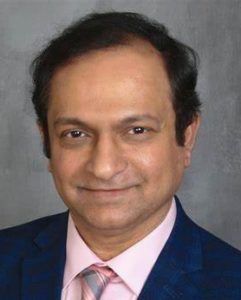
Asutosh Dutta is an IEEE Fellow, Chief 5G Strategist, Founding Co-Chair IEEE 5G and Beyond Initiative. He is IEEE Communications Society Distinguished Lecturer, ACM Distinguished Speaker and Accomplished technical and computer science expert with 30 years of experience directing multiple IT operations, research and development for leading global technology corporations and top universities. Prof. Dutta is seasoned Mobility and Security Architect, Chief Technology Officer, Senior Scientist and project manager with in-depth expertise in developing and implementing research, analysis, and design initiatives. He has expertise in computer communication, wireless networking, LTE networks, Network Function Virtualization (NFV), and mobility management. Author of 31 issued patents and 90 publications. Editor-in-chief for Journal of Cybersecurity and Mobility published by River Publishers.
 Snehanshu Pal has been working at the National Institute of Technology, Rourkela, India since 2014. He has served as a Post-Doctoral Fellow in the Department of Materials Science and Engineering, The Pennsylvania State University, USA. He has been awarded Ph.D. from the Indian Institute of Technology, Kharagpur, India in 2013. He has more than three years of Industrial working experience in an integrated steel plant, Steel Authority of India Limited, (SAIL, India). His research focuses on the study of deformation behaviour of nano structured material using molecular dynamics simulation, grain boundary engineering, process modeling for steel industry and applying AI in materials engineering. He has authored two technical books, 91 research articles in internationally reputed SCI journals and supervised 6 (Six) doctoral thesis. He is also an investigator of six sponsored projects.
Snehanshu Pal has been working at the National Institute of Technology, Rourkela, India since 2014. He has served as a Post-Doctoral Fellow in the Department of Materials Science and Engineering, The Pennsylvania State University, USA. He has been awarded Ph.D. from the Indian Institute of Technology, Kharagpur, India in 2013. He has more than three years of Industrial working experience in an integrated steel plant, Steel Authority of India Limited, (SAIL, India). His research focuses on the study of deformation behaviour of nano structured material using molecular dynamics simulation, grain boundary engineering, process modeling for steel industry and applying AI in materials engineering. He has authored two technical books, 91 research articles in internationally reputed SCI journals and supervised 6 (Six) doctoral thesis. He is also an investigator of six sponsored projects.
 Santos Kumar Das is an Assistant Professor at Department of Electronics and Communication engineering, National Institute of Technology Rourkela, India. He received his MS from IISc Bangalore, India, in 2002. He received his PhD from National Institute of Technology Rourkela, India, in 2014. He has worked in a number of organizations both in India as well as in abroad in various capacities. He has served on the Program Committee of a number of international conferences. He is a member of the IEEE. His research interest includes Computer Networking, Sensor Networking, Optical Networking, and Embedded system.
Santos Kumar Das is an Assistant Professor at Department of Electronics and Communication engineering, National Institute of Technology Rourkela, India. He received his MS from IISc Bangalore, India, in 2002. He received his PhD from National Institute of Technology Rourkela, India, in 2014. He has worked in a number of organizations both in India as well as in abroad in various capacities. He has served on the Program Committee of a number of international conferences. He is a member of the IEEE. His research interest includes Computer Networking, Sensor Networking, Optical Networking, and Embedded system.

Arun Kumar is an Assistant Professor in the Department of Computer Science & Engineering at National Institute of Technology, Rourkela, India. He has been a Research Fellow at Electrical Machines and Drives Laboratory (EMDL) in the Department of Electrical and Computer Engineering of National University of Singapore (NUS), Singapore from 2015 to 2018. He has worked as a Post-Doctoral Research Fellow at the Institute of Information Science, Academia Sinica, Taipei, Taiwan from 2014 to 2015. He has also worked as a Research Associate at the Infocomm Centre of Excellence (INFINITUS) of the School of Electrical & Electronics Engineering, Nanyang Technological University (NTU), Singapore. He received his PhD degree from the School of Computer Engineering, Nanyang Technological University (NTU), Singapore in 2014. He received his Master of Technology (M.Tech) Degree in Computer Science & Engineering from National Institute of Technology, Rourkela in 2008 and the Bachelor of Technology (B.Tech) Degree in Computer Science & Engineering from Institute of Engineering and Rural Technology (I.E.R.T), Allahabad in 2006. His research interest includes, Internet of Things, wireless sensor networks, ad-hoc and mobile networks, Data analytics, Sentiment Analysis and Vehicular AdHoc Networks.
Sign up for email alerts to get the latest news and announcements for the 2022 IEEE Future Networks World Forum. If you have specific questions, contact us at FNWF@ieee.org.








